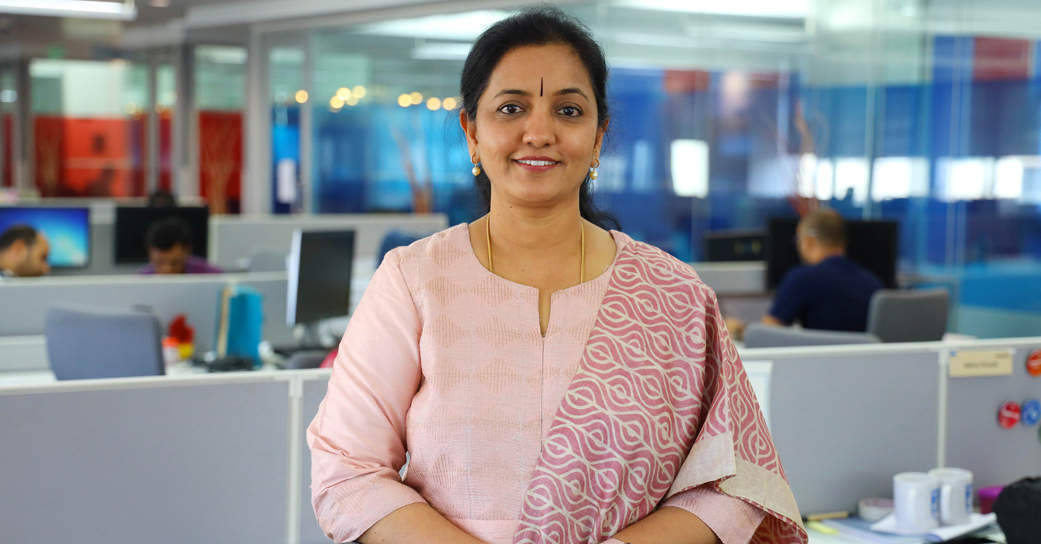
How emerging technologies are changing the future for healthcare professionals


We are living in an era where technology trends are disrupting the healthcare industry. This is challenging the way we deliver value to our customers and increasing the demand for integrated offerings. India’s healthcare industry is one of the fastest-growing sectors and is expected to reach $280 billion by 2020.
Healthcare systems are under constant pressure to deliver high quality and efficient care to growing populations, but at the same time, the financial and human resources to deliver that care are increasingly being stretched.
Some of the key challenges that the hospitals today are confronted with include:
- How to provide the best quality of diagnosis and treatment to patients
- How to guarantee patient satisfaction at the lowest possible cost
- How to implement the most efficient operational workflow
- How to ensure the hospital staff is efficient to deliver their best to the patients

Against the background of these challenges, the healthcare industry is undergoing significant changes with digitization.
Over the past decade, there has been an exponential growth of computational power. With the drop in data storage costs, the amount and granularity of stored digital imaging and the associated clinical data increased tremendously. However, only a fraction of this data is being used to improve the quality and efficiency of care since the growth rate and diversity of the data has far outpaced our ability to analyze it.
Some of the key technologies that have helped to develop healthcare include telemedicine, IoT, AI, next-generation sequencing (NGS) and cloud.
With the help of these technologies, we have been able to provide patients with access to advanced diagnostic tools, minimal invasive surgical procedures and advanced treatments.
How can these technologies help in delivering healthcare?
Digital health technologies will work as collaboration tools between doctor, hospital and labs, facilitating healthcare professionals to access information related to the patient for effective care. For example, an individual can have a virtual check-up with the doctor while smart mobile devices will constantly monitor the individual’s health vitals, analyze blood and oxygen level, and send the results to the doctor, who will then analyze the data during the checkup.

Similarly, NGS and gene analytics can not only predict the onset of a disease and empower the doctor to prescribe a customized treatment but also greatly enable preventative care. Hospitals will be equipped with connected technology – combining software, clinical decision support algorithms and mobile connectivity – that allows clinicians to monitor critically ill patients remotely, in real-time, to spot potential problems early on and act on them faster.
More importantly, digital technology will enable addressing a rather serious global problem related to shortage in the global health workforce.
As per WHO, a global deficit of 12.0 million health workers is estimated by 2035, against the threshold of 34.5 skilled health professionals per 10,000 people.
In India, it will be more as there are 0.76 doctors and 2.09 nurses per 1,000 population (as compared to WHO recommendations of 1 doctor and 2.5 nurses per 1,000 population respectively) and 1.3 hospital beds per 1,000 population as compared to WHO recommended 3.5 hospital beds per 1,000 population.
To give an example on how it will impact a patient, let's take AI from the perspective of a radiologist and see how the shortage of skilled radiologists can be supplemented by digital technology.

Due to heavy workload, radiologists today need to interpret images quickly, potentially reducing the diagnostic accuracy. It is apparent that when radiologists are rushed to report on their assigned cases, their error rate rises. Automation through AI can help in making the radiologist's job easier allowing more time to be spent on the most critical cases or complex ones that need deeper attention.
Traditionally, radiologists have based their findings on the imaging associated with the assigned case. However, given the increasing complexity of diseases, the availability of more patient data can certainly lead to better diagnosis. For example, if the radiologist is looking at the CT of a patient with a complaint of abdominal pain and if the fact that the patient is also HIV-positive is presented to the radiologist, it can trigger a check of the lungs, as well. AI can help in pinpointing locations of clinical interest and fetching all relevant contextual information from various sources like laboratory, pathology and EMRs for a more comprehensive diagnosis.
It is clear that technology will continue to play a significant role in healthcare but adoption of technology alone is not enough to address the healthcare challenges. It needs to adapt to the context, stakeholders’ need, extend their abilities, and help them achieve better health outcomes.

I truly believe that emerging technologies should enable a connected journey for people that offers a seamless, integrated and highly personalized care experience. A journey in which every single bit of information can add to a greater body of knowledge that patients, their care professionals, science and society at large can benefit from.

Kalavathi GV
Kalavathi GV is Head, Philips Innovation Campus. The views in this article are her own.
